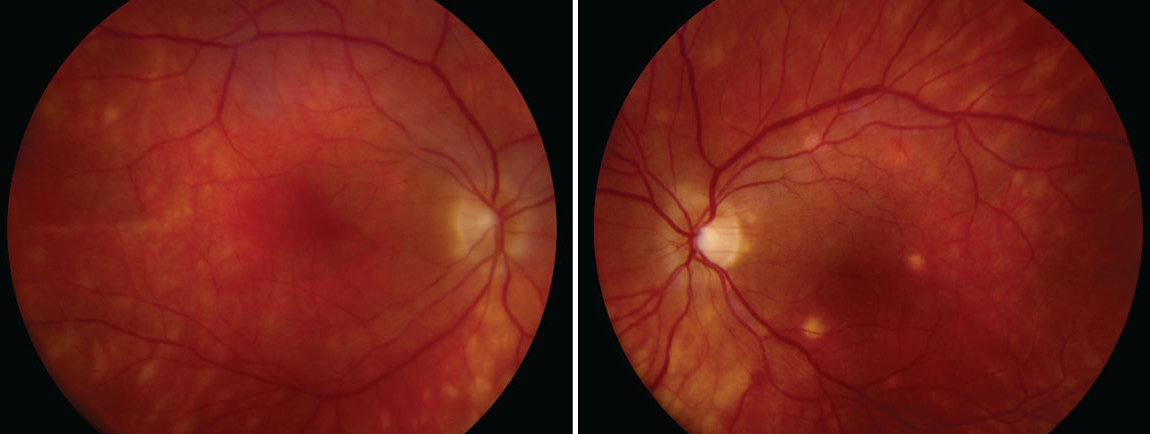 |
| COVID-19 infection rates and COVID-19 hospitalization rates were higher among those with noninfectious than infectious uveitis. Photo: Ellen Butts, OD. Click image to enlarge. |
During the early phase of the pandemic, some doctors were concerned that uveitis may increase COVID-19 susceptibility or worsen the severity of infection due to underlying dysregulated immune function. Researchers were able to since determine that patients with noninfectious uveitis in the United States are significantly more likely to be infected with COVID-19 and experience severe disease outcomes. However, this association is due to the demographics, comorbidities and medications of patients with noninfectious uveitis rather than the condition alone.
The study included almost six million patients, of whom 29,869 (0.5%) had a diagnosis of noninfectious uveitis. The researchers assessed rates of infection, hospitalization and in-hospital death related to COVID-19.
When analyzing these three categories on unadjusted analysis, patients with noninfectious uveitis had higher rates compared with those without—COVID-19 infection: 5.7% vs. 4.2%, COVID-19-related hospitalization: 1.2% vs. 0.6% and COVID-19-related death: 0.3% vs. 0.1%. However, in adjusted models, noninfectious uveitis was not associated with a greater risk of COVID-19 infection, hospitalization or death.
Age, gender, race and ethnicity, as well as comorbidities such as autoimmune disease, cardiovascular disease, diabetes and chronic kidney disease, were all strongly associated with COVID-19 hospitalization and in-hospital death.
Of note, the study found that use of systemic corticosteroids was significantly associated with higher risk of COVID-19 infection, hospitalization and death. “It is unknown if the association we observed is dose- or duration-dependent, and further research is necessary to elucidate the impact of systemic corticosteroid use on COVID-19 infection susceptibility and adverse outcomes,” the researchers wrote.
The team suggests that future uveitis treatment guidelines should encourage physicians caring for patients with noninfectious uveitis, particularly those on systemic corticosteroids, to provide counseling about possible increased risk and to encourage infection mitigation efforts.
Miller DS, Sun Y, Chen EM, et al. The association between non-infectious uveitis and COVID-19 outcomes: an analysis of United States claims-based data. Ophthalmology. October 11, 2021. [Epub ahead of print]. |


